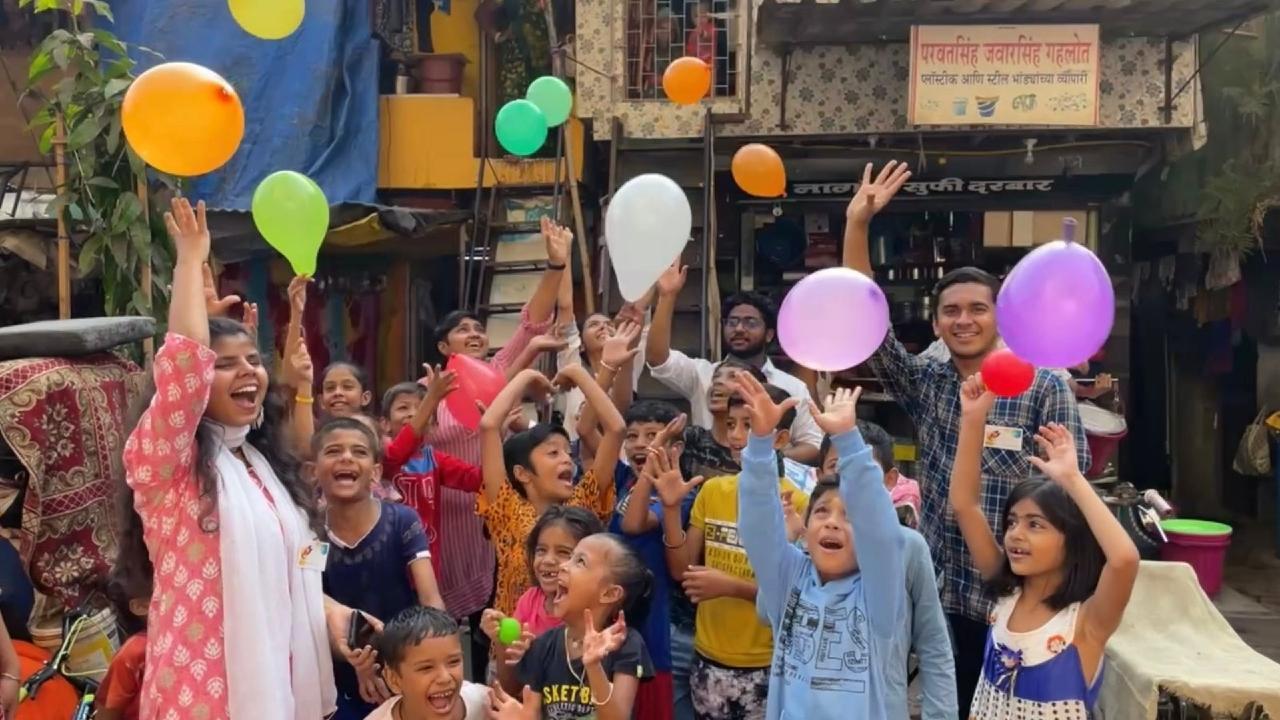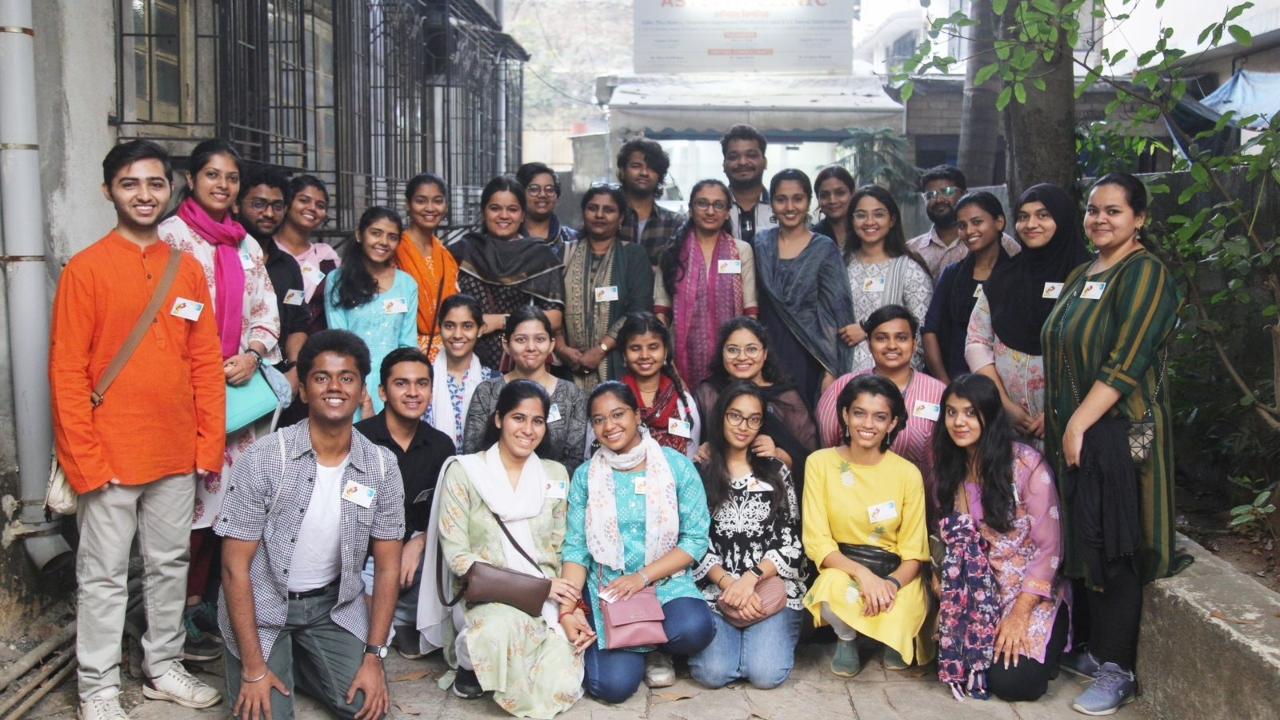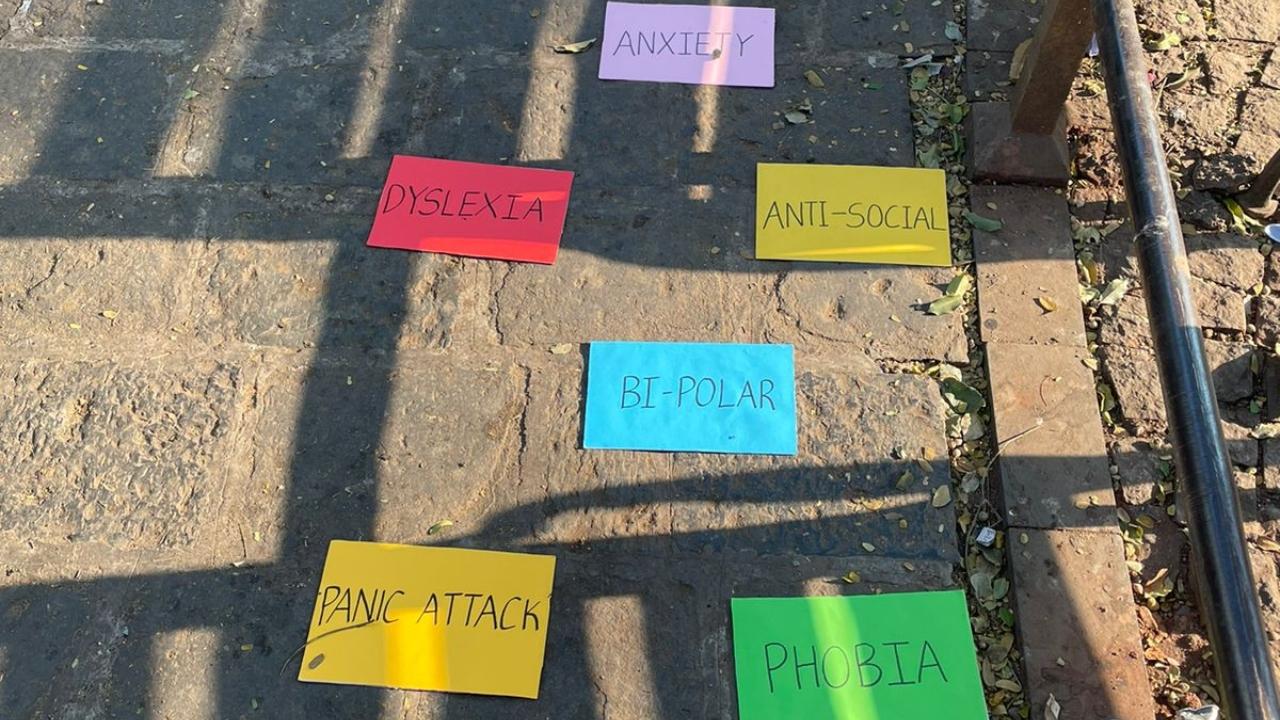Mental health outreach aces public spaces; initiative to bust myths, bring matters to people

Balloon activity with children in Wadala
Mental health was one of the buzzwords during the two-year COVID-induced lockdown or slowdown. ‘Expect tsunami of mental health problems’, shouted headlines in the media, to cite just one example. Some experts were bullish; they spoke about the upsides like growing awareness about mental health and people becoming more proactive about seeking help.
Matters of the mind took centre stage as Astitva Clinic, a Matunga-based mental health outfit, conducted its Community Outreach Programme (CORP) at different spots in the city—from south Mumbai to Dadar and the western suburbs over the past weekend. Astitva was founded by Anagha Afreddy, senior special educator; Heta Shah, clinical psychologist and counsellor; and Vishakha N Punjani, clinical psychologist and psychotherapist.
 Team Astitva founders and volunteers conducted the weekend workshop
Team Astitva founders and volunteers conducted the weekend workshop
The access
Morning walkers looked at the Astitva clinic set-up at Dadar-Wadala’s Five Gardens: a table, with paraphernalia like balloons and colour cards, to be used by volunteers. With these, the Astitva staff would be playing certain games with the public, understanding the mindset and trying to clear misconceptions about mental health. Said Punjani, “Bringing mental health into public spaces is about accessibility. Volunteers and we, founders too, fanned out at Shivaji Park, Dadar East, Girgaon Chowpatty, Bandra West and Marine Drive over two days. We took mental awareness health to the public, rather than wait for them to come to us.”
The myth
There were several misconceptions to be met head-on. At Shivaji Park, Astitva volunteers met a woman who told them straight up that she “felt like puking when she saw two women together in a lesbian relationship”. “We told her this is the way some persons are, but she was in denial. What was worrying was that she was a nursery school teacher,” said Nandini Patel and Karan Bhaip and added, “It was evident that she was in deep denial.”
Also read: ‘Mental Healthcare Act has now become a necessity’
Game, names
The Astitva team also had an eye-catching game on the sidewalk where concepts like ‘OCD’, ‘Dyslexia’ and ‘Insomnia’ were arranged in a hop-scotch pattern on the ground. Participants were invited to play a round of ‘hop-scotch’ just like we did when we were kids, said Afreddy and Punjani. “The overall aim,” the founders added, “was to teach people that terms like these are very loosely used. For instance, a person who has not slept well for two days might say, ‘I have insomnia’. That is incorrect. One has to be diagnosed with a condition by a certified clinical psychologist or a psychiatrist and only then you can say that you have one of these conditions. Yet, these are used extremely casually in conversation or just at times, to diss somebody. That is what we want to highlight with this game.”

Hop Scotch to better understand mental health concepts
Bottle battle
Volunteers Nandish Kuvardiya and Ruchi Mishra recalled their outreach at Bandra West. “We were on Carter Road and a gentleman approached us, stating that his wife was seeking help for depression. He also wanted help and actually later called up the clinic for a follow-through session,” they said.
Volunteers spoke about how a man who had a drinking problem told them he needed guidance or to be shown the way. “The important thing is that he recognised he may have a problem rather than being in denial, and then decided to address it,” they said.
Stress less
At the Five Gardens space, one witnessed a participant telling volunteers that if he saw that his friend was struggling through a problem and that it was affecting her mental health, “I would talk to her, offer to help. Yet, if I finally realised that I cannot, maybe tell her to seek professionals.” A trio of men claimed, “This is relax/de-stress time on Sunday when we all walk together and prefer to keep the conversations light. There was one person who used to talk about his problems during this time. We asked him not to join us.”
From awareness and introspection to denials and shutdowns, reactions spanned the gamut. Yet, it was important that there was engagement and with these public workshops, there was a stripping away of the intimidation or unease associated with mental health. The professionals signed off, “Public outreach is to send an initial message that there is no harm, or nobody will judge you for talking to us as there is fear and shame still associated with mental health. Despite repeated reassurances, we are still told by nervy, wary people, ‘We hope this will remain confidential’.”
 Subscribe today by clicking the link and stay updated with the latest news!" Click here!
Subscribe today by clicking the link and stay updated with the latest news!" Click here!








